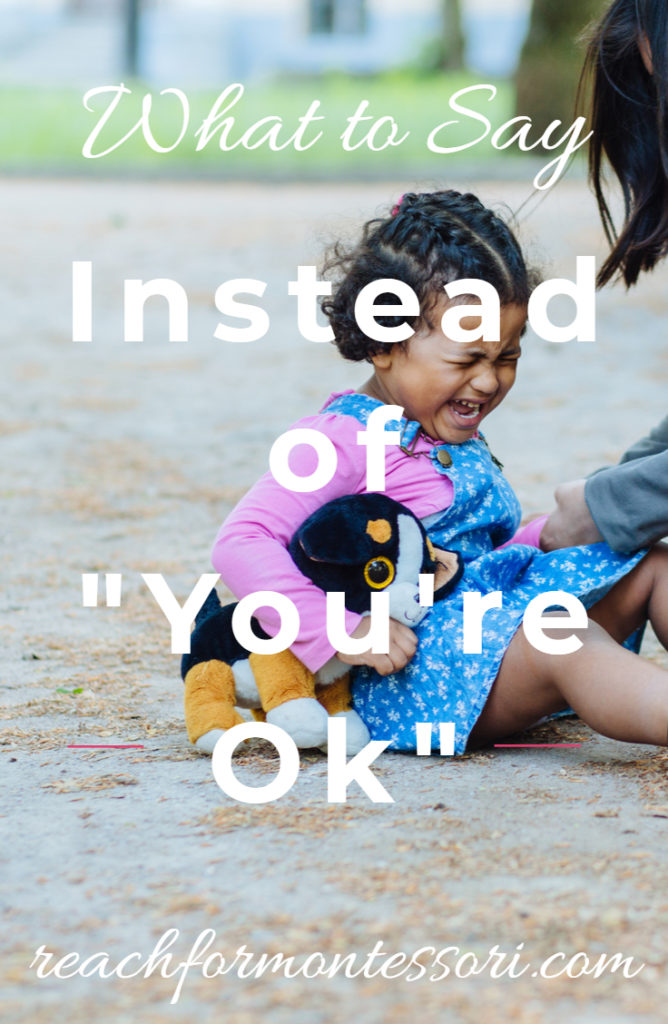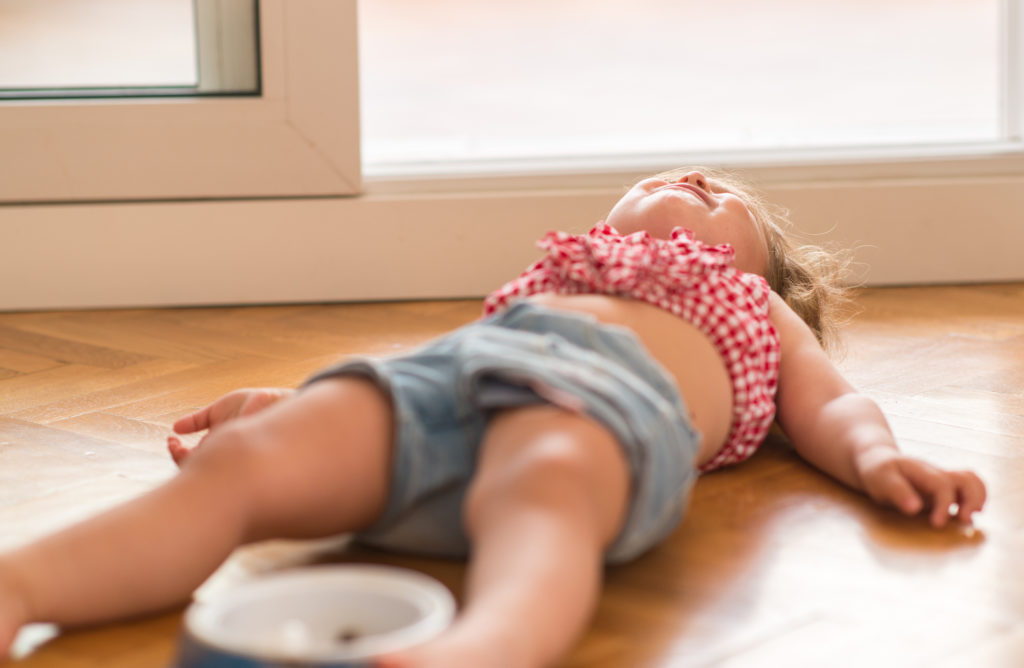Any parent or caregiver will attest to how accident prone children tend to be, whether you are use a free-range parenting style or if you tend to hover a bit. We have all likely overheard a parent on the playground or elsewhere say to a child who has just taken a spill, “You're ok” in an attempt to help calm them. Is this the appropriate response? If not, what should we say instead of “You're ok.“?
What is the problem with assuring a child that they are alright and how should we react when our child falls?

The problem with “You're ok”
Most falls in children do not result in a major injury, such as head trauma or broken bones. Even more rare are fatal injuries from falls.
These facts lead parents to jump right to calming their child following after a fall, with a cheerful, “You're ok.“, or a “Rub some dirt on it and go play.”
The problem with these phrases is:
- They are dismissive
- “You're ok” may not be accurate
- It's poor modeling
Children's emotions catch us off guard sometimes and their reactions to falls can sometimes seem extreme. Parents often worry that if they don't teach their children to “tough it out”, they will grow up to be physically and emotionally “weak” or overly somatic.
Crying and carrying on a bit is normal for young kids, though. Stressful situations, like falling and getting hurt, require co-regulation, such as with time-ins, and not brushing off by a trusted adult.
Kids trust us to help guide them through stressful and scary situations. We can easily break that trust with improper guidance.
It has also been shown in research that harsh or even aloof reactions from parents to their child's emotions can negatively impact their ability to emotionally regulate.

What to say instead of “You're ok”
When your child falls, the first thing you need to do is provide them comfort, while checking them for injuries.
This requires that you ask them if they are ok, instead of telling them that they are ok. There may be an injury that is not apparent to you or maybe they just need a little comfort.
You won't find these things out in a timely manner if you tell them how they are feeling instead of asking them, though.
Even a minor injury that does not require medical treatment, or even a bandage, can cause pain. And even if the fall did not cause physical pain, a child might feel startled or embarrassed.
Every feeling mentioned above requires comfort and caring.
Here are some things you can say instead of “You're ok“
- “Are you ok?”
- “How are you feeling?“
- “Can I do something to help you feel better?“
- “I saw that you fell. Does anything hurt?“
- “I'm glad you are not hurt. Did the fall scare you?“
- “Do you feel a little embarrassed that people saw you fall?“
In essence, find out how your child is feeling both physically and emotionally.
None of this means that you need to rush in a panic to your child for every slip or trip and provide a mini therapy session right there on the playground or walking trail. It is always a good idea to give them a few seconds to see how they handle the situation without your assistance.
Many parents find that avoiding eye contact during the initial period following a fall helps their child handle the situation calmly. Watching a fall can be jarring for us and children often look to their caregivers for a reaction, as it is a signal on how they should react.
Because of this, it is important to remain calm and not show your child that you are scared for them. This does nothing but increase their fear and anxiety.
Go over to the child, help them up, ask if they are ok and give them a chance to express themselves, then let them go about playing.
Not only does showing compassion help your child regulate their own emotional responses, but it shows them how to respond to others when they need comfort.
Kindness and caring is the Montessori response and a great Cosmic Lesson.
I would love to hear about somethings you say to your child instead of “You're ok“.
Cheers and don't forget to subscribe!

Actually really loved this. Never subscribed to a blog or anything of the sort, but I am now! Love this. I’m a mom to a 22 month old boy and 6 month old girl. Always looking for ways to improve!!
I never knew this, but I have always asked my daughter “are you ok” when she got hurt. Now she is 4 and if she gets hurt, she just yells “ I AM OK!” or “I got hurt I’ll be ok, it’s ok. Owie.” Of course I still ask if she is ok, but most of the time she beats me to it haha.
I worked with some kids that weren’t very good at answering whether or not they were okay. With those kids I’ve learned to ask “did it hurt or was it just scary.” Giving them an “or” to pick between when they’re crying seems to really help them focus and calm down.
this is wrong.. if they are ok.. then yes, its ok. to say your ok… but if they are gushing blood from some body part, then you may want to be a bit more stoic. anything but. oh my god. your bleeding to death.